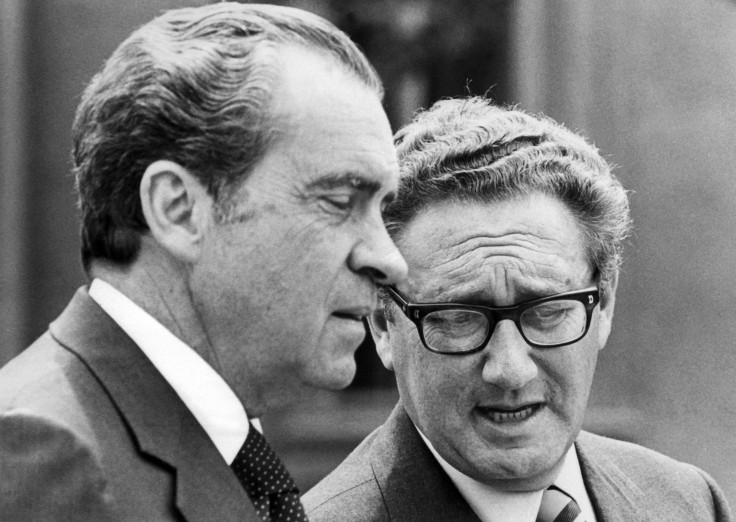Is The War On Drugs Racist? Nixon Aide Admitted Policies Were Designed To Target Black People, Anti-War Protesters

A previously unreleased interview with a top aide to President Richard Nixon indicates that the disgraced American leader stepped up drug prohibition in the United States for some pretty cynical reasons. When asked about the policies in 1994, Watergate co-conspirator John Ehrlichman, Nixon's White House domestic affairs adviser (1969-1973), bluntly responded that the so-called war on drugs was started to disrupt and imprison anti-war protesters and black people.
“You want to know what this was really all about?” he asked Dan Baum, who was writing a book about politics and drug prohibition, according to an essay written by Baum in the current Harper’s magazine. “The Nixon campaign in 1968, and the Nixon White House after that, had two enemies: the antiwar left and black people.”
“We knew we couldn’t make it illegal to be either against the [Vietnam] war or black, but by getting the public to associate the hippies with marijuana and blacks with heroin, and then criminalizing both heavily, we could disrupt those communities,” Ehrlichman continued, according to Baum. “We could arrest their leaders, raid their homes, break up their meetings, and vilify them night after night on the evening news. Did we know we were lying about the drugs? Of course we did.”

Recreational drug use rose in the 1960s, prompting President Lyndon B. Johnson to establish the Bureau of Narcotics and Dangerous Drugs in 1968 to consolidate agencies. It wasn’t until 1971, however, that Nixon declared during a press conference that drug abuse was “Public Enemy No. 1 in the United States.” In the years that followed, the budget for addressing drug issues shifted from favoring treatment programs to law enforcement.
The war on drugs has clearly affected African-American communities at a disproportionate rate, judging by incarceration rates. From 1980 until 2008, the number of people imprisoned in the U.S. quadrupled from about 500,000 to 2.3 million, according to the NAACP, the country’s oldest and biggest African-American civil rights advocacy group. And, while five times as many white Americans report using illicit drugs as blacks, African-Americans are sent to prison at 10 times the rate as whites.
“This is a frightening confirmation of what many of us have been saying for years. That this was a real attempt by government to demonize and criminalize a race of people,” the Rev. Al Sharpton, a prominent civil rights activist, told the New York Daily News in response to Ehrlichman’s confession. “And when we would raise the questions over that targeting, we were accused of all kind of things, from harboring criminality to being un-American and trying to politicize a legitimate concern.”
Ehrlichman spent 18 months in prison for crimes of conspiracy, obstruction of justice and perjury during the coverup of the Watergate burglary that led to Nixon’s resignation. He died in 1999.
© Copyright IBTimes 2024. All rights reserved.






















